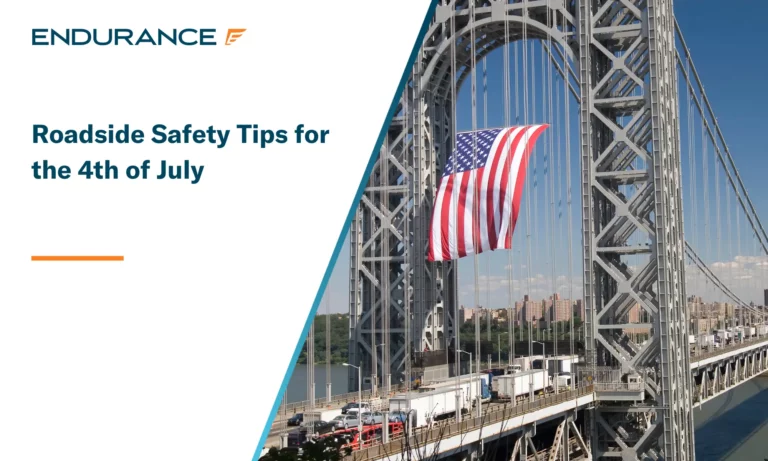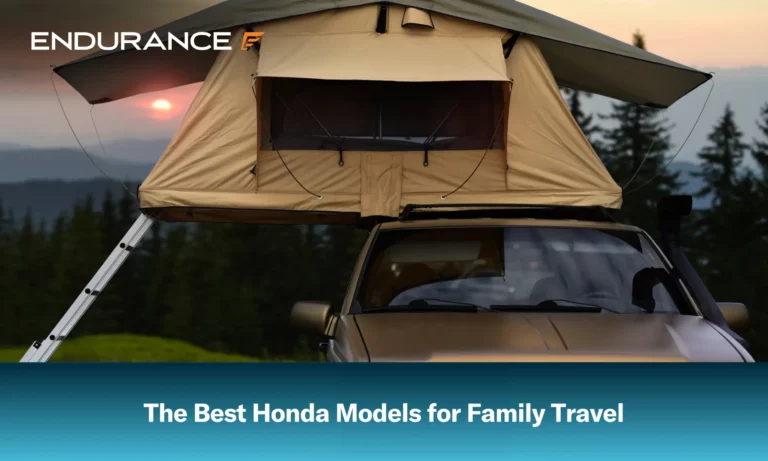De nuevo en la carretera: 4 consejos para elegir el mejor vehículo para viajes por carretera

Con la llegada de los meses más fríos, es el momento perfecto para comenzar a planificar un viaje por carretera en otoño Para disfrutar de lo mejor que trae la temporada. Sin embargo, las condiciones climáticas durante esta época del año comenzarán a ser más duras de lo que estaba acostumbrado durante los meses de verano.
Para quienes estén pensando en comprar un vehículo nuevo o usado y estén planeando un largo viaje por carretera, es importante que se tomen el tiempo de aprender a elegir el mejor vehículo para sus próximos viajes largos. Ya sea que se dirija a un parque nacional o tome la carretera para las vacaciones, tenemos los consejos para viajes por carretera que necesita.
Factores clave a tener en cuenta al elegir un vehículo para viajes por carretera
Al comenzar a comprar un auto nuevo o usado, habrá una gran cantidad de opciones a considerar. Si bien comprar un auto deportivo puede ser interesante para usted, no es el mejor vehículo para quienes viajan por carretera. En concreto, hay cuatro factores principales que debe tener en cuenta al considerar su próximo vehículo para poder usarlo en un viaje por carretera:
1. El tamaño total
El primero de los cuatro factores que hay que tener en cuenta al considerar un vehículo para viajes por carretera es el tamaño total del propio coche. Para ser justos, el mejor coche ideal para un viajero por carretera puede variar drásticamente en función de si planea viajar con otras personas o no. Por ejemplo, si tienes una familia a la que le encanta viajar tanto como a ti, optar por un Toyota más grande con un asiento trasero infamemente grande puede ser una excelente opción.
Por otro lado, si estás planeando hacer un viaje por carretera en solitario, entonces no necesariamente necesitas algo de gran tamaño, siempre y cuando tengas suficiente espacio para ti y tu equipaje.
2. La eficiencia del combustible
Naturalmente, Hacer un viaje por carretera en solitario o en familia requerirá estar en la carretera durante un período prolongado sin hacer nada más que conducir. Por lo tanto, el segundo factor a considerar al elegir un automóvil es el ahorro de combustible que le ofrece. Nadie quiere detenerse a cargar combustible en todas las ciudades solo porque eligió el vehículo incorrecto para sus necesidades, así que tómese el tiempo para revisar el ahorro de combustible publicado para el vehículo. Sin embargo, vaya más allá y también mire las opiniones de los clientes para determinar qué tan precisa es realmente esa estimación de ahorro de combustible.
3. La comodidad en la cabina
El clásico viaje por carretera totalmente estadounidense que quizás estés planeando puede potencialmente continuar durante semanas Con usted no haciendo nada más que sentarse y conducir detrás del volante. Para ello, concéntrese en encontrar un vehículo en el que personalmente disfrute sentarse y que sea bastante cómodo. Cuando busque diferentes autos, asegúrese de probar cada uno para asegurarse de que se ajuste a lo que está buscando. Sin embargo, vaya más allá de determinar si es cómodo sentarse en él y concéntrese en sentir cómo se conduce el auto y si se siente cómodo con su capacidad de respuesta.
4. La calificación de confiabilidad
Por último, el cuarto y último factor a tener en cuenta al buscar un vehículo nuevo o usado es la calificación de confiabilidad que ha recibido. Si bien consultar al fabricante del automóvil puede ser un buen comienzo, debe buscar fuentes externas para obtener una opinión imparcial sobre cuán confiable es realmente el vehículo, junto con información adicional. Por ejemplo, el Toyota Sequoia tiene una calificación de 3.5/5.0 por RepairPal, pero van más allá y mencionan que, en realidad, está por encima del promedio y que el vehículo ocupa el quinto lugar entre catorce SUV de tamaño completo. Si solo se hubiera guiado por la calificación del fabricante, por ejemplo, es posible que se haya perdido un automóvil sólido.
Los mejores vehículos para viajes por carretera
Con los factores anteriores descritos, es hora de echar un vistazo a tres de los mejores vehículos a considerar para su próximo viaje por carretera:
Hyundai Tucson Híbrido
Hyundai es una marca sumamente confiable en general, y su relativamente nuevo vehículo híbrido Tucson no es una excepción. Este vehículo puede recorrer hasta 38 millas por galón en la carretera, aunque la autonomía total del vehículo puede verse reforzada por las 33 millas adicionales que puede recorrer solo con electricidad. Esto puede ser útil en caso de apuro, cuando se está estancado en algún lugar de la carretera sin una estación de servicio cerca y se conduce con los gases de escape.
Además, el Tucson Hybrid se destaca en la categoría de comodidad con amplios puertos USB, Apple CarPlay, una pantalla táctil y asientos cómodos. Es un vehículo relativamente asequible. A partir de solo alrededor de $32,000, lo que la convierte en una excelente opción a considerar.
Navegador Lincoln
Para quienes tienen familias numerosas que planean llevar a campamentos o a un viaje por carretera en general, el Lincoln Navigator es un vehículo que deben tener en cuenta. Este automóvil cuenta con tres cómodas filas y funciones de seguridad avanzadas, como asistencia para mantenerse en el carril, que puede resultar de ayuda en viajes largos.
El MPG que recibe es ligeramente inferior, solo 23 en la carretera, lo cual vale la pena señalar. Sin embargo, este vehículo también viene con comodidades adicionales como Wi-Fi, puertos USB, pantallas táctiles y más. Estas características tecnológicas tienen un costo Costo inicial más alto de alrededor de $80,000, lo que hace que esta sea una compra arriesgada para algunos.
Toyota Rav4 Híbrido
Por último, el Toyota Rav4 Hybrid es un vehículo básico que muchas personas han considerado en algún momento u otro. Con hasta 41 MPG en la carretera y dos filas de asientos cómodos para los pasajeros, este puede ser un excelente vehículo para viajes por carretera a tener en cuenta. Las características de seguridad, como el control de crucero adaptativo y el reconocimiento de señales de tráfico, son particularmente útiles en la carretera, y este vehículo viene con todas las comodidades de los dos anteriores en esta lista. Para aquellos que buscan ahorrar dinero, esta puede ser una gran opción, ya que El precio comienza en solo $30,000 de término medio.
Cómo preparar su vehículo para un viaje por carretera
 Una vez que hayas decidido cuál es el vehículo perfecto que mejor se adapta a tus necesidades, tendrás que empezar a prepararlo para tu próximo viaje por carretera. Independientemente de si vas a llevar una autocaravana grande o un vehículo más pequeño en tu viaje, Utilice los siguientes consejos Para garantizar que pueda soportar el estrés de la carretera:
Una vez que hayas decidido cuál es el vehículo perfecto que mejor se adapta a tus necesidades, tendrás que empezar a prepararlo para tu próximo viaje por carretera. Independientemente de si vas a llevar una autocaravana grande o un vehículo más pequeño en tu viaje, Utilice los siguientes consejos Para garantizar que pueda soportar el estrés de la carretera:
- Vuelva a comprobar el aire acondicionado: Aunque viaje durante los meses más fríos, tener varias personas dentro de un vehículo durante horas puede calentar el vehículo. Si bien puede abrir las ventanas, es recomendable comprobar que el aire acondicionado funciona antes de partir.
- Inspeccione la presión de los neumáticos: Naturalmente, los neumáticos de su vehículo se llevarán la peor parte de la fuerza de la carretera durante el viaje. Salir con los neumáticos desinflados es una receta para el desastre, así que, en lugar de eso, tómese el tiempo de inspeccionar visualmente los neumáticos para ver si tienen algún daño y luego pruébelos manualmente para ver su nivel.
- Cambiar el aceite: Incluso si todavía no es el momento de cambiar el aceite, puede que valga la pena hacerlo antes de emprender el viaje. Esto puede ayudar a garantizar que el motor funcione sin problemas cuando se someta a la tensión del viaje.
- Pruebe la batería del automóvil: A Una batería muerta significa un coche muerto en su viaje por carretera, que es algo que nadie quiere. Pruebe la batería manualmente para asegurarse de que se encuentre dentro del rango correcto antes de su viaje.
- Empaque elementos de seguridad en el maletero: Además de su equipaje, piense en empacar elementos de seguridad como un botiquín de primeros auxilios, alimentos no perecederos, un mapa físico (en lugar de usar solo Google o Apple Maps), bengalas y otros elementos de precaución en caso de que quede varado.
Consejos útiles para preparar el equipaje para un viaje por carretera
Una vez que hayas comprado el coche y estés preparado para el viaje, solo te queda una cosa por hacer: meter todo en el vehículo. Para lograrlo y asegurarte de tener espacio de almacenamiento para otros artículos importantes, sigue estos consejos:
- Empaca todo la noche anterior a tu partida en lugar de hacerlo el mismo día.
- Enrolle la ropa lo más apretada posible para crear más espacio en su maleta o bolso de mano.
- No olvides empacar artículos como un gato para neumáticos y un lector de presión.
- Considere usar cubos de embalaje si su vehículo tiene poco espacio
- Invierta en un organizador de baúl para su viaje para mantener las cosas accesibles.
Manténgase seguro en su viaje por carretera con Endurance
Lo último que necesitas al emprender un viaje de larga distancia por carretera es escuchar un ruido extraño seguido del chisporroteo del motor. Quedarse varado en un lugar desconocido puede ser una experiencia desalentadora y peligrosa, pero contar con un vehículo confiable te ayudará.
Todos los vehículos, independientemente de su fiabilidad, sufrirán averías en algún momento. ¡Por eso es importante contratar un contrato de garantía extendida!
Endurance ofrece opciones personalizables planes de protección de automóviles, con tres opciones principales para elegir según sus necesidades específicas. Con paquetes que van desde la cobertura establecida diseñada para vehículos más antiguos con el plan Secure Plus hasta una cobertura casi total con el plan Supreme, hay algo para todos.
Cada plan Endurance incluye un conjunto de beneficios estándar, que incluyen asistencia en la carretera y remolque las 24 horas, los 7 días de la semana, servicios de apertura de puertas, entrega de combustible y más. Además, los nuevos clientes pueden disfrutar de un año de Beneficios Elite gratuitos por una pequeña tarifa de activación, que ofrece bonificaciones adicionales como reemplazo de llavero, $1,000 en protección contra pérdida total, $500 en cobertura de colisión y más.
Para obtener más información sobre cómo un contrato Endurance puede ayudar a proteger su vehículo en un próximo viaje por carretera, no dude en llamar a nuestro galardonado equipo de servicio al cliente al (800) 253-8203 a Solicite una cotización GRATIS. Tú también puedes tienda en linea para ver su precio de inmediato.













El blog Endurance está impulsado por un equipo de expertos en automociónProfesionales de atención al cliente y redactores del sector dedicados a ayudar a los conductores a tomar decisiones más inteligentes sobre la protección y propiedad de sus vehículos. Desde información sobre coberturas hasta consejos para el cuidado del vehículo, nuestro contenido está diseñado para informar y apoyar cada etapa de la experiencia del conductor. Para consultas de prensa, póngase en contacto con [email protected].